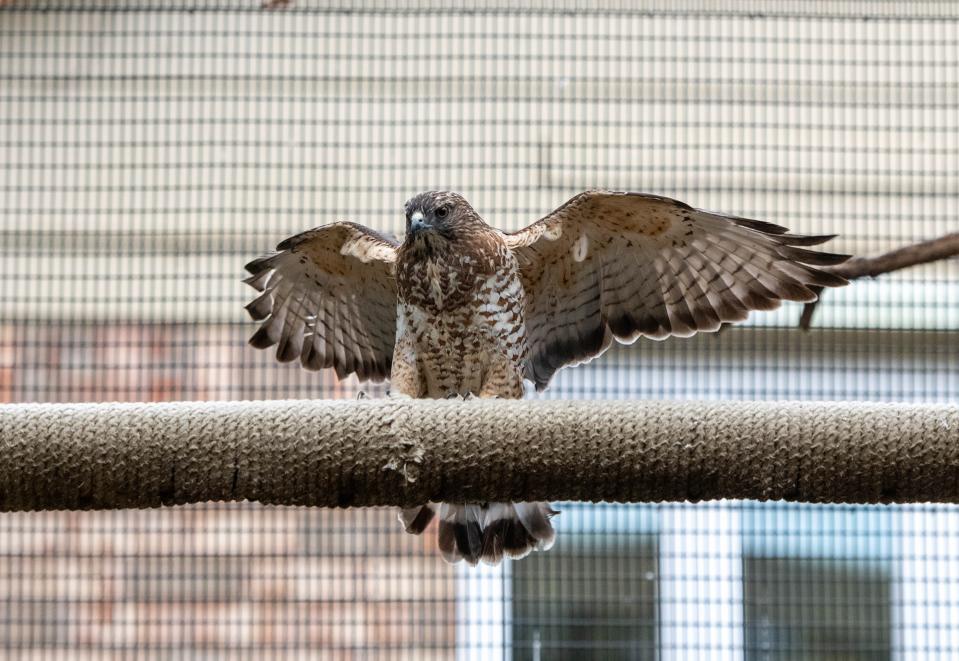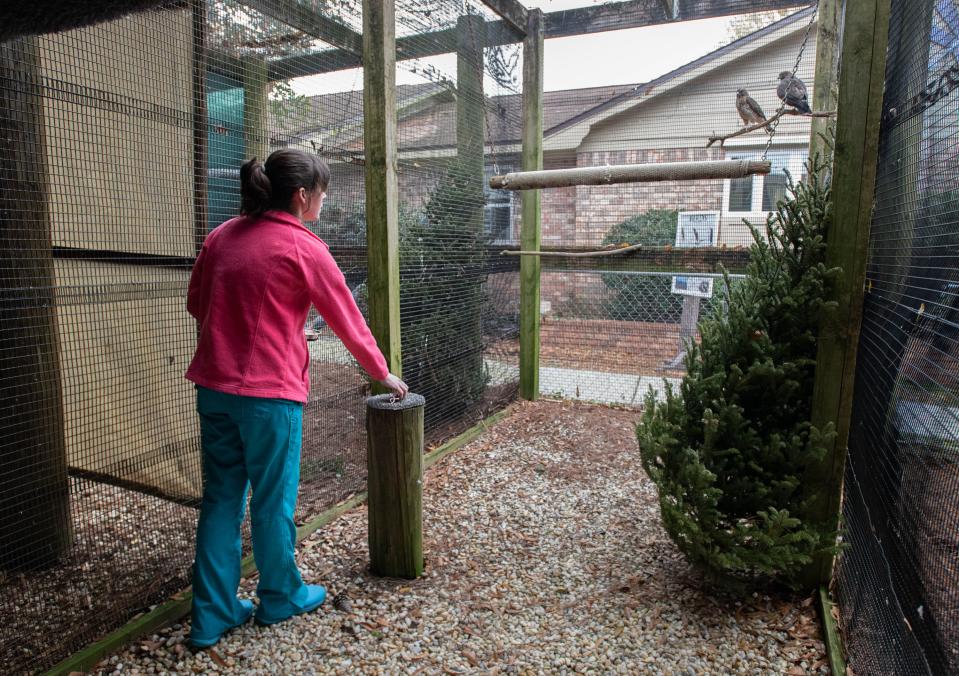Freezing temps take toll on wildlife, sea turtles. Here's how you can help.
When frigid temps settle across Northwest Florida for several days in a row, it can take a toll on wildlife. Most can shrug off the cold as long as they are strong and healthy, but those that aren’t may suffer.
The Wildlife Sanctuary of Northwest Florida takes in injured wildlife. Those who can be nursed back to health are returned to the wild, but those that can’t often find a home at the Pensacola facility.
Close to 40 animals live there permanently including birds of prey like owls, hawks and eagles, marine birds like pelicans, as well as squirrels and other four-legged critters.
Three to four thousand more injured animals pass through the sanctuary’s hospital each year on their way back to recovery.
When freezing temps sweep in, the sanctuary shelters some animals indoors, and those that can withstand the cold get some extra pine straw in their nest or pallet, as well as wind guards.
Birds especially can be hit hard.
“It kind of depends on where we're at in migration as to how many animals are going to be affected,” said sanctuary Director Emily Holden. “A lot of these big fronts will push large numbers of birds through on their migration south. We haven't seen a ton of that with this wave. We'll see what comes through the next couple of days, but we do see a lot of pelicans this time of year, a lot of seabirds and then your songbirds that are just exhausted from migration.”

Finding food and water is tougher in the winter and for those that want to help their feathered friends, Holden suggests providing bird seed and fresh water, especially after a freeze.
Look out for cold stunned sea turtles
Cold weather can also leave some sea turtles stunned by the cold.
Cold stunning is when sea turtles become weak and have health issues after being exposed to water 50 degrees or below for several days. Since sea turtles are cold blooded they cannot regulate their body temperature. If hypothermia sets in, they struggle to function and become lethargic and slow-moving.
Cypress Rudloe, executive director of Gulf Specimen Marine Lab in Panacea, Florida, west of Panama City, said along the Florida Panhandle most cold stunned sea turtles turn up in St. Joseph Bay because it faces north.
“We've had two days where it stayed 45, so that's going to make them go dormant,” Rudloe said. “The healthier turtles are, they're going to be able to shake it off, warm up, and get back out there as day highs come, but once we get farther in the week, by the time you get to day four or five days, that's usually when they start showing up in years past.”
Usually, there are fewer cold stunned turtles reported the further west you go across the Panhandle, but Rudloe says it’s important for boaters and beach goers to be on the look out regardless.

“As these cold fronts come through, they have that north wind that pushes a lot of these turtles offshore in different areas where they'll get to deeper water and they'll be OK,” said Rudloe. “When they get stuck on the barrier islands with these north winds, that's when they get stuck up on land and that's when they get really exposed to the elements because they're no longer in the sea water and they're stuck on the beach, basically.”
If you do see a sick or cold stunned sea turtle, experts say don’t move or touch it, but report it to Florida Fish and Wildlife Conservation Commission (FWC) at 1-888-404-FWCC (1-888-404-3922).
If you find a cold or injured bird or animal, you can also call FWC or visit the Wildlife Sanctuary of Northwest Florida's website for information on what you can do until they get professional help.
This article originally appeared on Pensacola News Journal: Cold weather Northwest Florida hazardous to sea turtles and wildlife

